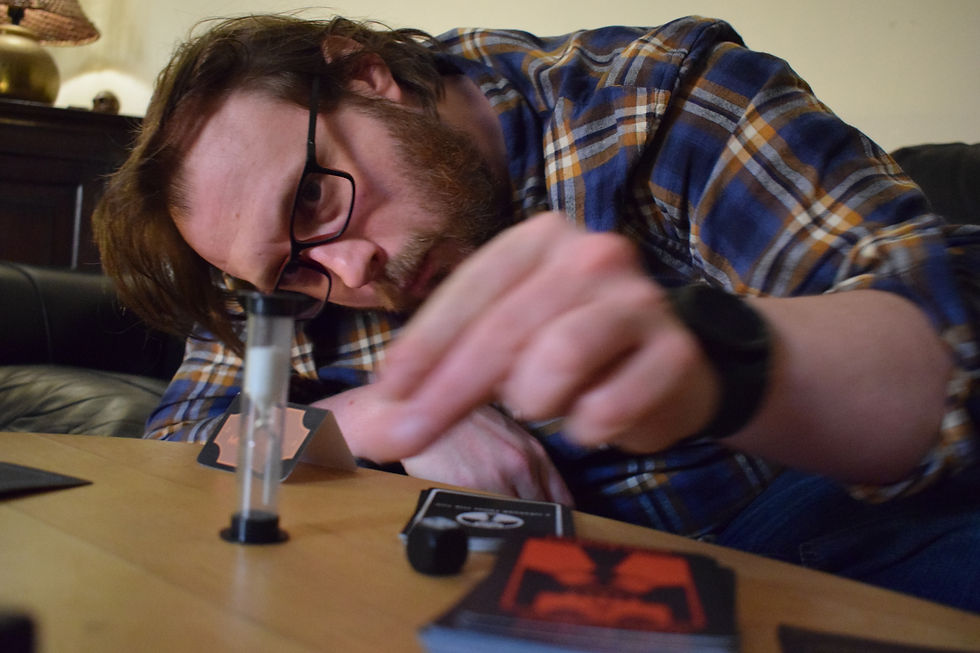🎲 Why Play Is Political: What Games Teach Us About Power and Possibility
- Jul 11, 2025
- 2 min read
Updated: Jul 15, 2025
Is play political? We believe it is — not because every game is an activist tool, but because every game is a system. And systems reflect values.
At Terror Toad, we create fun, accessible, offbeat tabletop games. We come from performing arts and community art backgrounds — where play and participation aren’t just creative acts, but deeply human ones. In our experience, play can be silly and joyful… but it’s never neutral.
In this post, we’re exploring why play is political, and how games can subtly challenge — or reinforce — the world around us.
🌍 1. Play Creates Alternative Realities — and That's Radical
When you sit down to play, you agree to a new set of rules. Suddenly, success might depend on empathy, absurdity, chaos, or chance — not profit or authority. That temporary shift matters.
Games create space to imagine different ways to live, act, and relate. In that sense, every game world quietly asks: What if things could be different? That question alone is revolutionary.
🛠 2. Games Are Systems of Power — Just Like Society
Games teach us how to operate within systems: follow rules, bend them, break them, negotiate them. And just like real-world systems, games often reward some behaviours and suppress others.
When we play, we get to examine those dynamics:
Who holds power?
Who wins easily, and who’s left behind?
What happens when we resist the rules?
That mirror — even in the goofiest party game — can reflect how we navigate systems of privilege, oppression, and structure in everyday life.
🚪 3. Access to Play Is a Political Choice
Not everyone feels welcome at the table. Some games assume prior knowledge, require expensive materials, or speak to a narrow audience.
At Terror Toad, we aim to make games that are playful, open, and inclusive — because who gets to play is just as important as what they’re playing. Games are each unique experiences - the best ones won't be for everyone - but the point is that anyone can try it out.
Designing for accessibility isn’t just good UX. It’s a statement about who belongs in this space.
🧠 4. Play as a Tool for Imagination, Subversion, and Resistance
Play lets us try on new roles, explore alternate selves, and rehearse transformation. That’s not escapism — that’s imagination. And imagination is essential for change.
Even when our games are about death-plotting or birds in disguise, we’re inviting players into a world with a different logic. Sometimes, that shift in perspective is the seed of something bigger.
💥 Final Thoughts: Play as Power and Possibility
Play is messy, joyful, weird — and full of potential.
It can reflect the systems we live in, or help us imagine something stranger and kinder. Not every game we make is political on the surface. But all of them invite players to connect, question, and explore. And in a world that often discourages those things?
We’d say that’s political.
🐸 Want More from Terror Toad?
Follow us on Instagram
Read our Picks for Party Games
Sign up for our newsletter — no flooding the inbox, we swear x




